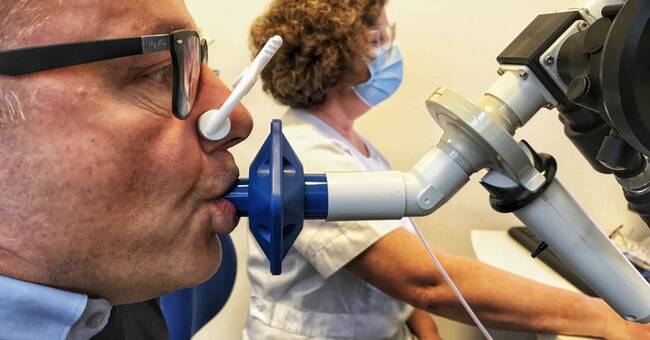This Christmas, Henrik Damgaard suffered from covid-19 for 59 years and was admitted to Bispebjerg Hospital in Copenhagen.
- I got really bad with a high fever and poor oxygen uptake, he says.
Today, he is on a return visit to the hospital, which is one of the nine investigation and knowledge centers in Denmark that have opened for both previously admitted covid patients and patients who have been referred from primary care.
Interdisciplinary teams
In November, the Danish National Board of Health and Welfare, the National Board of Health, called for the establishment of regional clinics with interdisciplinary teams that will evaluate, treat but also gather knowledge about long-term coronary heart disease.
And today there is already a waiting period of five to six weeks.
- The advantage is that you can gather the expertise and ensure that a broad investigation program is made, says Helle Frost Andreassen who is chief physician at Bispebjerg's pulmonary medicine department and who led the work of organizing the activities.
See more in the clip above.
Skåne will start teams in March
Since last summer, all hospitalized patients have been followed up at the infection clinics in Skåne.
- But now the care will be improved for patients with long-term problems after covid-19, regardless of whether they have been cared for in hospital or not.
says Malin Inghammar, who is chief physician in infectious diseases at Skåne University Hospital and chair of the steering group that organizes the care of patients with long-term covid.
And it is very reminiscent of what it looks like in Denmark.
- From the first of March, the infection clinics at Skåne University Hospital will start with team-based multidisciplinary care of patients with long-term symptoms after covid, she says.
But there is help to be had already now, she says in both primary care and specialist medical care. But there is still a lack of knowledge.
Work is underway to gather knowledge about long-term covid and review the entire care chain.

